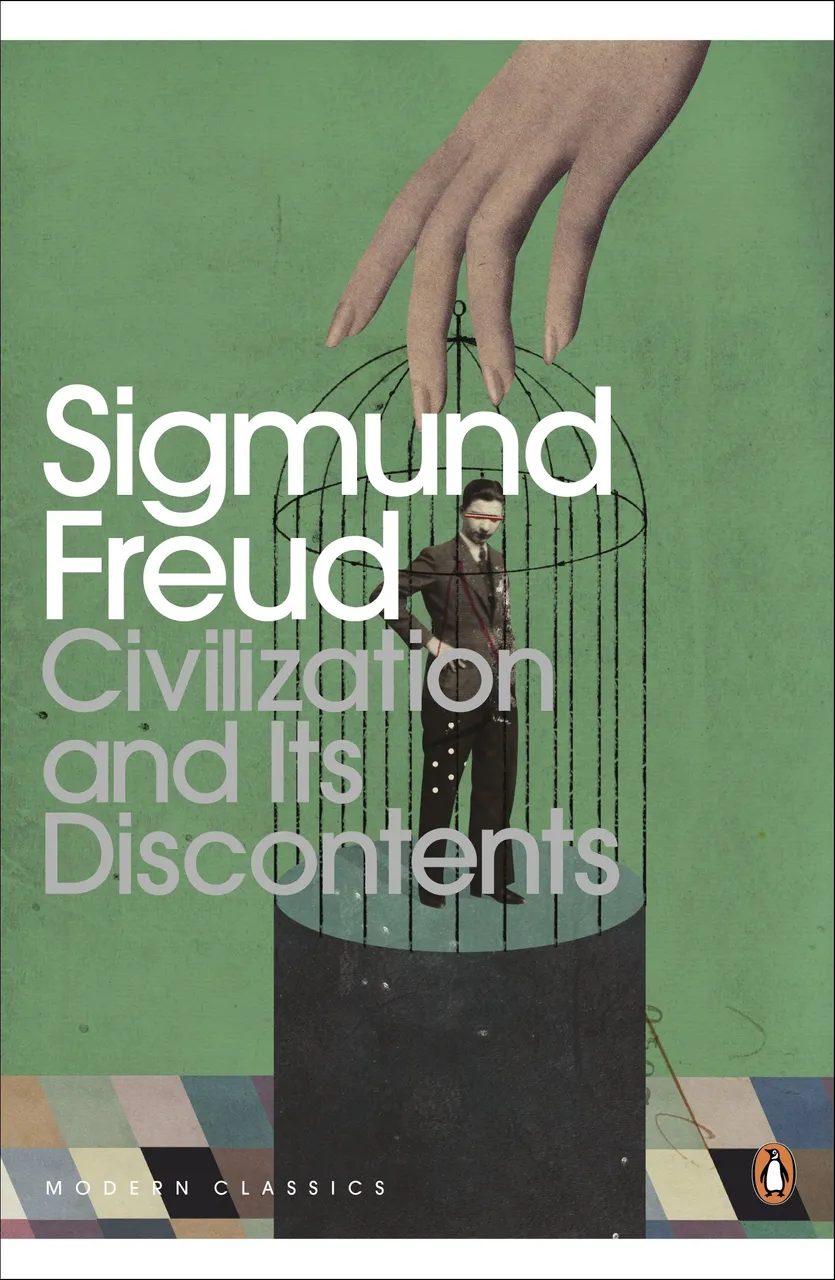 This is one of my favorite books, I always like to give it a look again and again to see how it is intemporal.
This is one of my favorite books, I always like to give it a look again and again to see how it is intemporal.
Civilization and its Discontents talks about Sigmund Freud's theory that civilization itself is the main source of unhappiness. By inhibiting their natural instincts, civilization drives people towards unhappiness due to guilt generated through our ego. Freud concludes his book with a suggestion that civilizations and individuals develop in parallel ways, and that just as it is possible for individuals to become neurotic, it may be possible that civilizations can be disturbed in a similar way.
"One thing only do I know for certain and that is that man's judgements of value follow directly his wishes for happiness (...)"
SEQUENTIAL BREAKDOWN
Freud begins by referring to an earlier work on the topic of religion and its origin in human civilization. Freud mentions that there is a desire among individuals to feel they belong referring to this as an "oceanic" feeling (eternal; everlasting). He thus lays the groundwork to discuss civilization in terms of natural instincts and makes the suggestion that the two are linked.
Freud takes a top down approach by starting with the civilization then analyzing the psychology of the individual, their instincts and motives in forming a civilization, and the instincts that would seem to harmful to long term survival.
Freud finds that man turns to religion to find his main purpose on earth though only seems to find that we pursue the life for the purpose of maximizing pleasure and minimizing pain. We want to feel happy though there is the ever fleeting dichotomy between how we can only "feel" this emotion when we have something to contrast it with. There are various sources through which we can feel unhappiness- from our body, the world itself, and from our citizens- though the latter is the most painful of them all.
One way we can maximize pleasure is in pursuing a purpose in professional excellence. Most people work out of necessity and are thus unhappy in their pursuits. This is the main cause of their lack of satisfaction on their daily dealings.
People feel the need to seek happiness externally so they seek it through their sexual activities or in the enjoyment of beauty. The danger with this is that, like anything in life, we must pursue the middle path (as the Buddhists teach) as there are eminent dangers in operating at the extremes.
To participate in civilization we need to play by the rules stipulated by the collective good and "group think" is what determines what is just. The collective good suppresses the natural instinct of human beings, in turn generating what Freud calls 'cultural frustration'. Once the individual allows them to become conditioned in this manner, they are allowed to participate in the day-to-day dealings of civilization.
The main instinct that is being suppressed is the aggression that human beings feel. This is channeled into physical energy thst is released through sexual desires and that can be channeled in other areas of our life (I suspect this is what drives the competitive nature of professional athletes and top performing CEOs). The downside of this guilt is that when it cannot be expressed externally the super-conscience channels this back internally and moderates itself by becoming a feeling of guilt.
Freud concludes that for an individual to join civilization, they need to suppress many of their natural instincts, making them unhappy, due to fear of punishment from an external authority, and later by the individual themself (propagated by their conscience). The worst of it all is that when good people make mistakes, they reprimand themselves more than when bad people make mistakes; the guilty conscience senses the disparity of the persons actions and then creates a loss oh happiness given the contrast of that person's expected behavior.
This guilt is an eternal struggle between an instinct for love and death. By analogy, Freud extends these conflicting instincts to the development of civilization, drawing a parallel with human development. He does not attempt to judge the value of civilization but ends the book with the hopeful suggestion that civilization may eventually develop past this ultimately destructive stage (added in 1933 in response to Hitler being appointed as the German chancellor whilst he lived in Vienna).